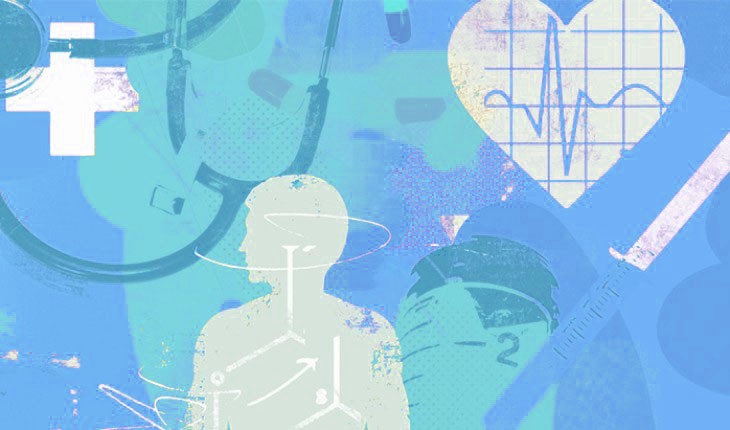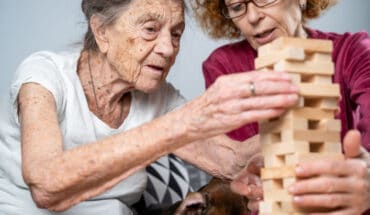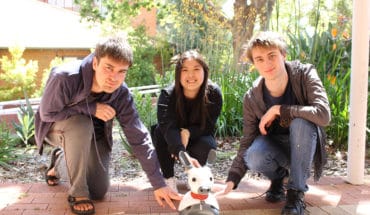Dementia is an issue society can’t escape. According to the Alzheimer’s Society by 2050, the 30pc of people over 65 predicted to develop dementia, will have grown from 800,000 today to 1.7million sufferers. If you then count family members caring for elderly relatives, the illness will directly and indirectly affect more than half of us.
With dementia currently costing the economy £23 billion in medical and social bills each year, the impact on the economy will be huge.
However new innovations are already paving the way towards better, more effective care, improving patients quality of lives.
Thanks to pioneering design and targeted technology, dementia sufferers will soon be able to access the internet through simpler touch-screens, enjoy gardens containing sensory, memory-jogging plants and eat from plates designed specifically for their needs.
They will even be able to benefit from dementia dogs trained to wake patients up, fetch medicines and take them to the toilet.
Caused by Alzheimer’s disease, stroke and general age-related cognitive decline, dementia can affect language, movement, behaviour and personality, not just memory. While the progressive deterioration in brain function can be delayed by healthy diet, medication, moderate exercise and mental activity, it can’t be prevented. That’s why managing the illness while finding ways of enhancing quality of life is so critical.
The new innovations are set to help dementia sufferers at every level, from memory-enhancement right through to triggering appetite.
BRAIN TRAINING: Cognitive Stimulation Therapy (CST) is a series of hour-long group ‘brain training’ sessions that is poised to offer a drug free treatment for early to moderate dementia. In the sessions, games, sound, childhood memories and number games stimulate the brain. A trial conducted in 23 care settings found it so effectively improved reasoning, name and word finding, it is as effective as several dementia drugs.
WEB FOR THE AGED: Other than provide information, the internet can be a source of creativity, pleasure for the elderly, helping them connect to the past. MyLife, an internet based service, offering a dementia-friendly touchscreen and simpler choices for ease of use, aims to help the elderly communicate and connect to memories through personal calendars, photo albums and music.
GPS WRISTBAND: Designed to offer a discrete alternative to alarm systems worn round the neck, the Buddi is a waterproof wristband that acts as a GPS and alarm system. It can send different types of alert to carers, informing them of a dementia patient’s location, whether they have had a fall, require information or need emergency assistance.
APPETITE TRIGGERS: One of the problems with dementia is patients can forget to eat or cannot see or smell food properly. ODE, a fragrance release system emits appetising odours such as Bakewell tart or citrus fruit to whet the appetite at mealtimes. Meanwhile Peter Rose, director of Find Dining has applied dementia-friendly design to crockery. ‘Dementia sufferers often have trouble with vision,’ he explains. ‘If eating from a white plate, they may have trouble seeing potato or rice and often leave it behind.’ Find Dining have produced brightly coloured crockery in yellow and blue, with steeper sides than standard bowls and plates to prevent spillage.
DEMENTIA DOGS: Trained with the patient and carer before symptoms are too severe, Dementia Dogs could wake up patients, fetch medicines and guide them to the toilet or on local errands. Dogs also aid social interaction, explains Jeni Lennox project manager of of the Dementia Dog project, so can help prevent people with dementia from becoming isolated.
- Combination of drugs could prevent thousands of heart attacks - 21st April 2025
- UQ Study Links Poor Teen Diets to Heavy Social Media Use - 21st April 2025
- Gut microbiome could delay onset of type 1 diabetes - 3rd April 2025






